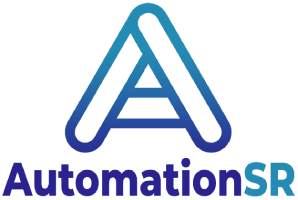
Right now, failing background checks is a major concern for many. Last year’s pandemic has so many people out looking for work, many with lingering financial issues.
Let’s face it…2020 was a year of tumult, boredom, and hysteria. It was a time of great uncertainty. Millions went through layoffs or applied for unemployment benefits. Others were forced to work from home whether they liked it or not. Many employees had toiled for years to store up benefits. Some sat at home, did nothing, and still got paid. Others watched their savings accounts dwindle.
After more than a year shot-through with so much turmoil, it will be challenging for everyone to get back to work in person. Challenging or not, it’s high time to apply for new jobs or return to your old one. The competition will increase. Those who wait around will have an even harder time getting back to work.
Everyone is feeling a bit more cautious these days. One thing you can be sure of is that more and more companies will be running background checks. If, for whatever reason, you’re afraid of failing a background check, here are some tips to help you meet any difficulty head-on.
1. Background checks will uncover any tax-related problems.
One thing you should do before you apply for any job and risk a background check is to fix any tax fraud issues. Were you on disability leave or workers’ compensation? Even unemployment comes with tax issues. You will definitely want to make sure that Uncle Sam gives your IRS records a clean bill of health.
If you deliberately or accidentally left out taxable income — or have any other tax-related issues — you may face tax fraud charges that will likely affect your employment prospects. When any company runs a background check on you, rest assured that tax issues will come up. They will be understandably hesitant to hire anyone with this red flag.
2. Share all workers’ compensation records.
Employers don’t tend to respond favorably to workers’ compensation claims, but they respond even less favorably if this information is intentionally left out of the interview process.
Truthfully, it doesn’t often reflect well on a job applicant to have received this kind of compensation. Expect the interview process to include a lot of questions as to why you received workers’ compensation. Details should be openly shared to set the interviewer at ease. You will want to provide the most accurate possible accounting and confidently invite them to contact the affected employer. If the affected employer disputed your claim, you should expect that to be problematic, too.
3. Don’t embellish. Keep your story consistent with background checks.
If you lie about your education, employment history, or the details of your accomplishments, they will show up in your background check. If you have embellished or been less than truthful about your previous jobs and/or education, it will be uncovered. Count on it.
Even if you accidentally messed up some dates, this will raise suspicions. Make sure that all of the details on your resume are 100% accurate. You will be pretty dismayed if a background check came back and the company has reason to believe that you have not been entirely forthcoming. On top of that, word spreads quickly about less-than-honest job seekers.
4. If you do have a criminal record, be transparent about it.
Any details regarding a criminal record will show up on a background check. If you’ve been to jail or even have a misdemeanor on your record, it will pop up. This is why it’s always better to be upfront, transparent, and honest.
Get these incidents removed from your record if possible. However, if you are not permitted to expunge a past crime, be honest whenever you apply for a job.
If you tell an interviewer that you have something on your criminal record during the application process, they will at least appreciate the honesty. Depending on the nature of the offense and the position for which you are applying, it still might impact your eligibility. However, it will always be better that you were honest about it. The company might have other positions opening up for which your past offense won’t be problematic.
5. Be upfront about past names (if any) and places you’ve lived.
Background checks will automatically provide information about past names and addresses to the employer. If you changed your name, for whatever reason, you should tell them upfront about the previous name. Don’t wait for them to find out on their own. Name changes are not necessarily a red flag.
However, if your background check comes up with a name change you haven’t mentioned, the company is likely to become suspicious. They’ll want to know why you changed it and (more importantly) why you didn’t tell them. Being transparent is always the best choice, especially if you have nothing to hide.
Not only will a background check provide information about past names to a prospective employer, but it will also show them your current address and any other past addresses. If your prospective employer expects you to reside in a certain area and you don’t actually live there, it will likely cost you the job.
6. Make sure you have any required licenses, certifications, or references.
Nowadays, even a cursory background check can provide a future employer with information on licenses, certifications, and references. The increased connectivity of these datasets represents yet another reason to be completely honest. Make sure that you actually hold the licenses or certifications you say you have. If any of them have lapsed, for whatever reason, be sure to point that out ahead of the background check.
All of your references should be current and easily verifiable. Whoever you’ve listed should be given the courtesy of knowing that you are out interviewing and using their name. if even one of your references is sketchy, you should assume that your prospective employer will ferret that out. They’ll discover whether or not that you worked for the person or were colleagues with them. You should not embellish references in any way.
Many people are surprised — some unpleasantly — when they find out that a background check now includes information on licensure, certifications, and references. Head off future snags in the interview process with a radical commitment to full transparency. So-so credentials that are easy to verify will beat impressive resume items that turn out to be less than accurate every time.
7. Even a bad driving record will show up during background checks!
A poor driving record may not affect your eligibility for a job. However, it’s yet another window into your character and integrity. This will be especially true if you aren’t forthcoming about it.
Obviously, this factor will be especially pertinent if you’re applying for a job that involves operating a vehicle or other equipment. Driving records include tickets, accidents, and more information than most realize. The good news is that you can expunge a lot of these details from your driving record. You might want to take steps to do so prior to diving into the interview process.
Moving Forward in the Coming Year
If you’re looking for a new job, your key in the coming year should be a focus on transparency. Everyone has been through a lot. The last thing employers want to deal with is deception.
Revisit your resume and references with an eye to maintaining full integrity. This holds true whether you have a criminal record, poor driving record, employment gaps, average education history, lapsed professional licenses, or lack impressive references. With competition increasing in job applications, more companies will be using background checks to narrow down the number of applicants and prospective candidates. Be ready!
With any luck, the end of the pandemic is at hand. Many of us need to return to work in person. If you have anxiety about background checks and what they will reveal to an employer, do your best to get out ahead of it before you apply to jobs.
With millions of people going back to work and companies needing employees, it’s necessary to look your best when it comes to applications, interviews, and hiring. Honesty goes a long way this year.





